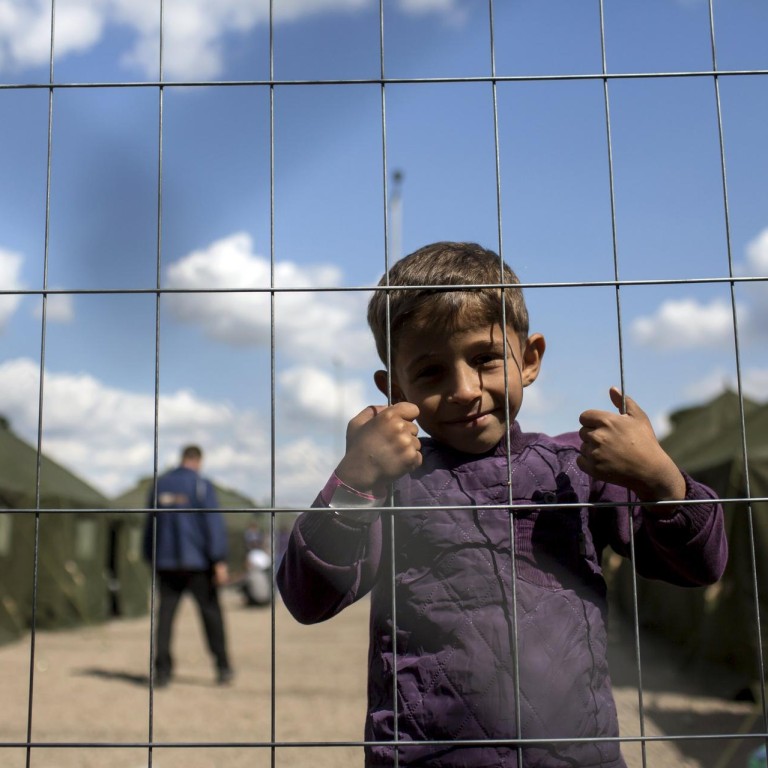
Is Russia's involvement in international coalition against Islamic State the key to ending Syria crisis?
Moritz Pieper says Putin's apparent willingness for more diplomatic engagement strengthens the consensus that Syria must not be a destabilising black hole for the region
We told you so. This was the message Russian President Vladimir Putin conveyed in his reaction last week to Europe's refugee crisis, announcing that Moscow is considering options to join an international coalition against Islamic State.
Russia's contribution to solving the Syrian civil war has so far consisted of supporting President Bashar al-Assad.
The memory of the war in Libya and the toppling of Muammar Gaddafi is still fresh; a war that China and Russia also helped to pave the way for by abstaining from vetoing UN Security Council Resolution 1973. The Russian rationale now is that it will not again allow the overstepping of a UN mandate to justify regime change.
Yet, the Syrian situation is more complex: neither the US nor Russia want regime change, because any alternative, so the thinking goes, would probably turn Syria into a destabilising black hole for the region and beyond. Russia fears the spread and exodus of mercenaries, militants and terrorists, including to the North Caucasus and Russian territory.
Islamic State's rapid advance and brutality shook the world last year. Yet, its rise and expansion were a logical consequence of the world community's blatant lack of policies to deal with the Syrian conflict. Millions of people from Syria and Iraq fled to neighbouring countries like Jordan, Lebanon and Turkey, only exacerbating those countries' already fragile social mosaics and overburdening their financial and logistical capacities.
Regime change in Damascus was no longer an option. The bigger enemy, so the perception goes, is now the Islamic State
One year later and the refugees have reached Europe, only to experience what led them to flee in the first place: disgraceful inaction. Hungary's government erecting fences brings to mind an era that most hoped had long gone. Prime Minister Viktor Orban's statement that the refugee crisis was "not a European, but a German problem" is as telling about national egoisms as a reaction to the unfolding humanitarian disaster, as it is about the consequences of a wantonly neglected European neighbourhood policy. In its most serious credibility test, Europe is slamming the door shut in the face of those in need, eroding the very values upon which the European project was built. Single countries welcoming refugees like Germany, Austria or Sweden cannot compensate for the lack of a European-wide migration policy.
Russia's reaction is unequivocal. This crisis was an absolutely predictable one, Putin proclaimed, and underlined that he warned long ago against the West's misguided foreign policy in the Middle East. With Putin now throwing his hat into the ring of the anti-Islamic State coalition, Russian foreign policy is undergoing a shift as a result of the chaos in war-torn Syria. Having consulted with US President Barack Obama, Turkish President Recep Tayyip Erdogan, as well as the governments of Saudi Arabia, Jordan and Egypt, Putin is sending signals that indicate stronger diplomatic engagement. A compatibility with US interests in Syria is starting to become more visible.
This shift was conditioned on the US government no longer wanting to topple Assad - confirmation of which came from US Secretary of State John Kerry, who publicly mused in March that Assad would have to stand down as part of a political settlement - an indication that military adventures to force regime change in Damascus was no longer an option. The bigger enemy, so the perception goes, is now the Islamic State.
With Turkey having abandoned its ambiguous position on the violence at its borders, and flying air strikes against Islamic State bases, Russia's potential participation in an international coalition is the latest sign that the days of Islamic State reign might be numbered.
Any future political settlement of the Middle East, however, will look nothing like the regional order we once knew. Hatred and radicalism, as spin-offs from a raging transnational war in its fifth year, together with the biggest migration flows the world has seen since the second world war, will fundamentally alter the political landscape of the region and beyond.
